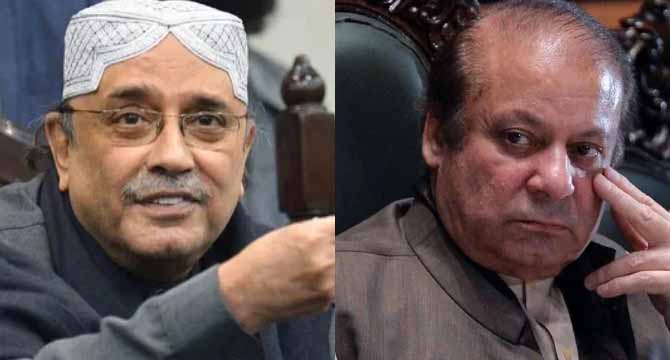ISLAMABAD, June 28, 2023: The high-level stakeholders’ summit in the Gulf state of Dubai is not deliberating on electoral alliances or seat adjustments for the elections; rather, it aims to devise a unified strategy to address the aftermath of Pakistan Tehreek-e-Insaf (PTI) Chairman Imran Khan’s fallout, according to several top sources involved.
The stalwarts of both the Pakistan Muslim League-N (PML-N) and the Pakistan Peoples Party (PPP) have engaged in closed-door, off-camera sessions to discuss various options aimed at containing and managing public sentiments, and ensuring the absence of any destabilising void that could potentially undermine civilian governance.
Ever since his removal from power on April 22 through a vote of no confidence, Khan has witnessed a remarkable surge in support, particularly in urban areas.
This groundswell of backing has triggered a series of consultations between the leaders of the PML-N, PPP, and other representatives with the primary objective of strategizing a political response in the event of Khan’s conviction and subsequent disqualification.
Several commentators have offered perspectives on what may be the agenda of the meetings in Dubai.
One commentator believes these meetings are being held to clarify misunderstandings and heal any divisions in the ruling coalition.
Other commentators are of the view that these meetings aim to devise an election strategy and its modalities, including the decision on whether to contest the election as an alliance, the date of the election itself and the possible return of PML-N supremo Nawaz Sharif as well as come to an agreement on who would be the next prime minister.
However, a reliable source close to these developments has dismissed all these claims and stressed that the sole focus of these meetings is to prepare for the post-Khan scenario.
The source revealed: “The ongoing consultations between the PML-N, PPP, and other relevant parties aim at strategically preparing for the potential outcome of Imran Khan’s conviction and disqualification.”
Another high-level source said: “The purpose of the meeting is to play a positive role for democratic and economic stability. All parties involved are willing to set aside any internal differences and interests to deal with the national challenge before us through a united front.”
Multiple sources from various political parties have confirmed the same.
The narrative coined by the former prime minister has now become the focal point of an extensive military-led investigation into the events that unfolded on May 9.
On that day, Khan’s supporters rampaged through more than 200 military installations across the nuclear-armed nation, leaving behind a trail of desecrated symbols of the nation’s martyrs.
This violent eruption occurred subsequent to Khan’s arrest by paramilitary forces, as he faced corruption inquiries linked to a massive 190 million pounds scam.
Those in power corridors believe that the May 9 upheaval was not a spontaneous uprising; rather, Khan and the PTI party leadership had been laying the groundwork for it for more than a year.
In numerous speeches, Khan had threatened state institutions against arresting him, saying they would face the wrath of the people if any such move was made against him.
Furthermore, he resisted arrest several times when police arrived at Zaman Park by calling his supporters to act as human shields. All of this was preparation for violent protests in case he was actually arrested. This view was reflected in DG ISPR’s press talk on June 26.
“The investigation held until now has proven that [the events] of May 9 were being planned for the past several months,” he said.
“Under this planning, first a conducive environment was created and people were instigated and provoked against the army. Then, in this connection, a narrative based on lies and exaggeration was spread on social media inside and outside the country,” the DG ISPR said.
In the aftermath of the crackdown on the May 9 arson and attacks, the majority of the senior leaders within the PTI have distanced themselves from Khan.
Moreover, the majority of these leaders have hastily joined a newly established political entity called the Istehkam-e-Pakistan Party (IPP), symbolising a significant shift in their loyalties and further intensifying the political landscape.

